7 Movies Similar to ‘Imaginary’
If you’re deciding whether or not to see Imaginary, this list of movies featuring similar themes, ideas, and plot threads will help you make your decision. If you’ve already seen Imaginary, check out these movies next.
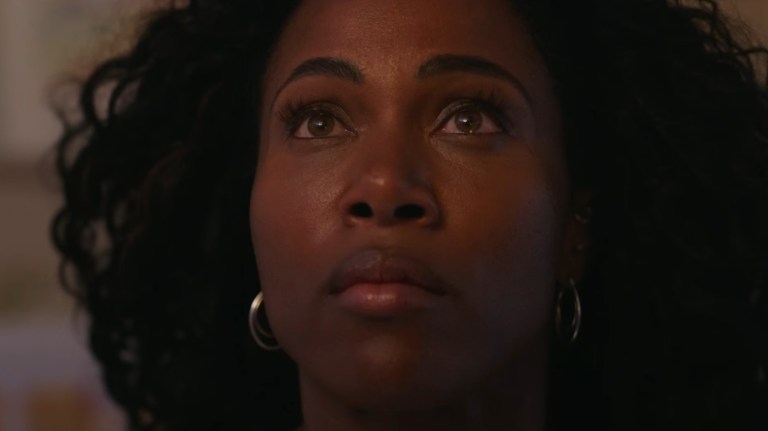
Table of Contents
Imaginary is a horror movie that features “imaginary” friends, the power of imagination, and general spookiness involving a teddy bear. Produced in part by Blumhouse, it is a movie that focuses more on lore and backstory than lot of genuine scares, but it can be a good fit for the right audience. If you’ve seen Imaginary and enjoyed it, the list below contains movies that are similar in some way, so you might enjoy them as well. If you haven’t seen Imaginary, this list of movies might help you figure out whether you’ll want to spend your time on it. But first, a brief summary of what Imaginary is all about.
What is Imaginary About?
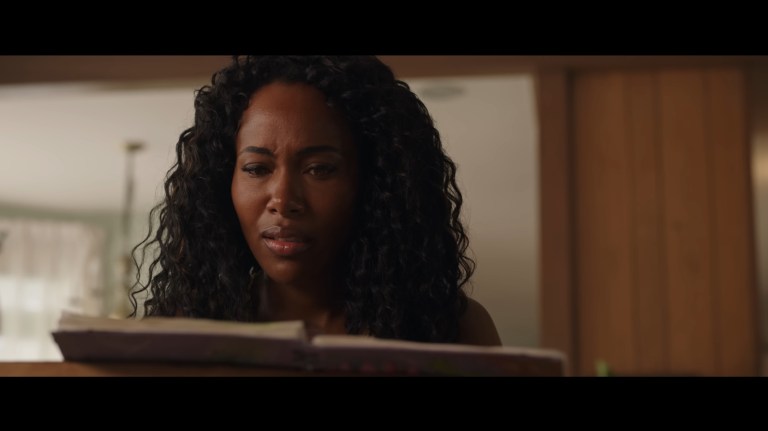
Imaginary follows Jessica, a woman who moves with her husband and two step-daughters into her childhood home. Jessica has recurring nightmares, and she and her husband Max hope that moving into the house will help remedy whatever is causing her unease. Jessica can’t remember her childhood, but she does remember being happy in the house… until she had to move out at a very young age and live with her grandmother when her father became mentally ill.
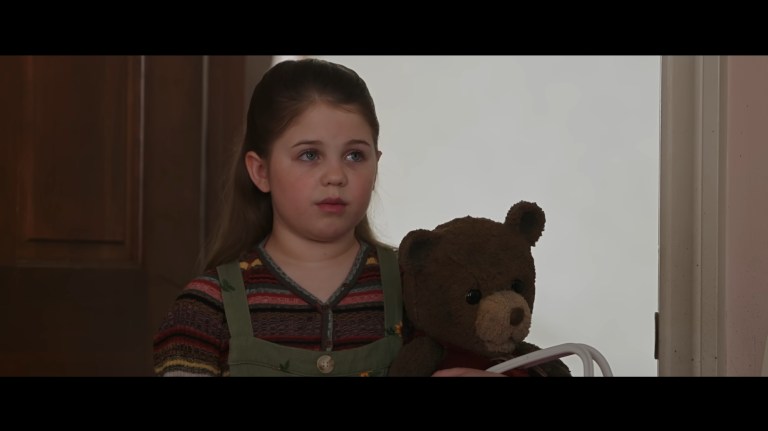
Soon after moving into the house, Jessica’s youngest step-daughter, Alice, finds a teddy bear behind a wall in the basement. Alice speaks to the bear, and she reacts like the bear, named Chauncey, speaks back to her. Everyone thinks it’s cute that Alice has an imaginary friend until Alice beings doing dangerously out-of-character things. Things that begin to remind Jessica of her own time as a child. Is Chauncey really telling Alice to do things? How are Jessica and her childhood home connected to the current events? These questions and more are explored as Imaginary digs into the idea of a deadly imaginary friend.
Movies Similar to Imaginary
The Boogeyman (2023)
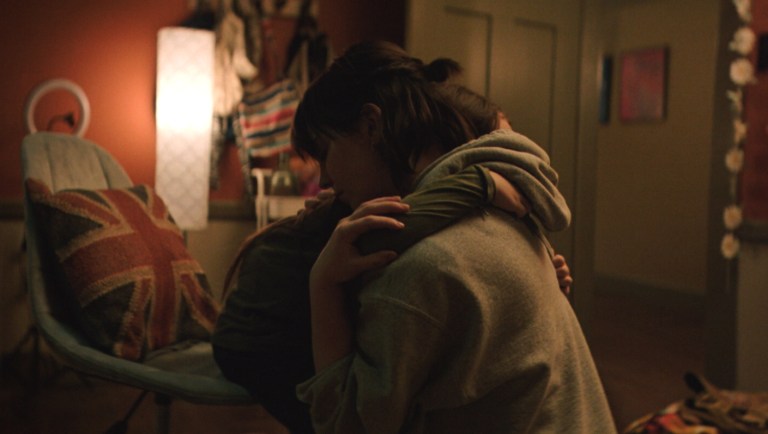
Out of all the movies in this list, The Boogeyman is the most similar in tone to Imaginary. They’re both modern, PG-13 supernatural horror movies that aren’t too scary. They also both end up in a finale that is marginally character driven, but is really more about special effects and action. Both movies also feature a young girl who is thought to be imagining things that are actually happening. They really are quite similar in a lot of ways, though Imaginary is way more whimsical in how it approaches its supernatural elements, especially later in the film. There’s a level of fun in Imaginary that isn’t as present in The Boogeyman.
M3GAN (2022)
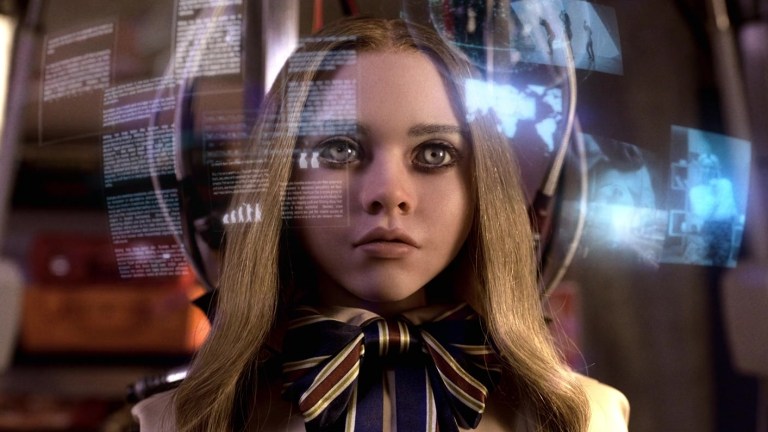
M3GAN, also produced by Blumhouse, is a good choice for a double-feature with Imaginary. Both movies are about young girls who become friends with objects that are not supposed to be as alive as they truly are. Both movies are also fit for younger audiences given their PG-13 rating and tendencies to shy away from really frightening moments. In many ways it feels like Blumhouse was attempting to recreate the success of M3GAN with Imaginary, or to at least use M3GAN‘s success as a way to funnel fans of the killer android into theaters for Imaginary.
Insidious (2010)
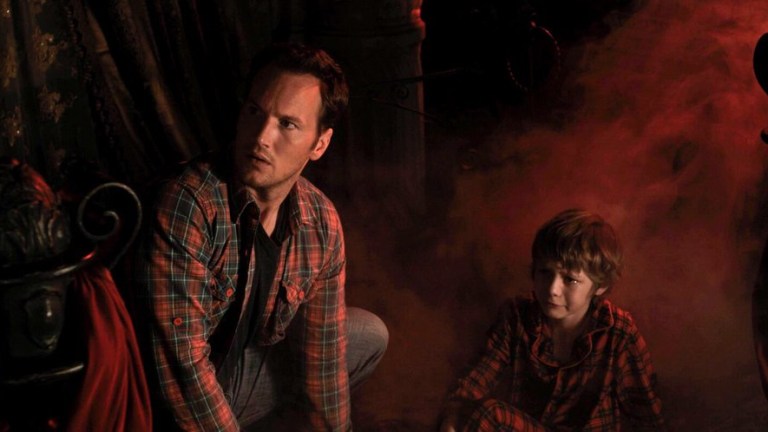
The similarities between Imaginary and Insidious mostly have to do with their plot threads involving a child targeted by a supernatural force. To say too much would necessitate big spoilers for Imaginary, but the final acts of both films involve similar situations in which a parent has to confront past, repressed fears and take a journey somewhere to save a child from a different plane of existence. One big difference here is the fear factor. Insidious is much scarier than Imaginary, so Imaginary might actually be better for family viewing and for people who don’t do well with many jump scares (even though there are a few jump scares in Imaginary).
Lights Out (2016)
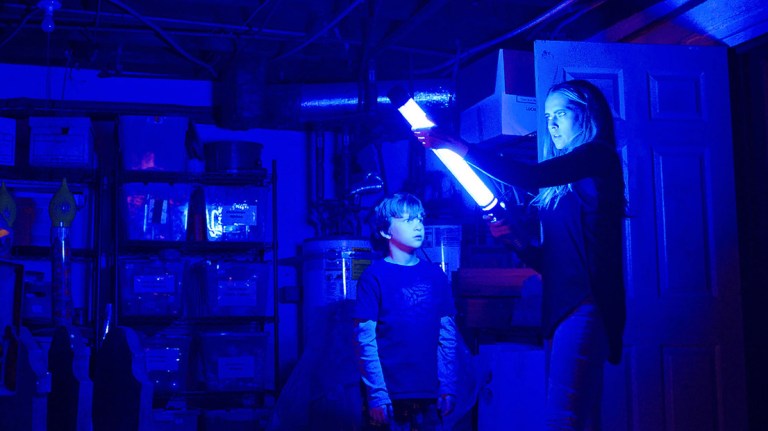
Like Imaginary, Lights Out is a modern, supernatural horror movie about childhood fears coming back to haunt an adult. In Imaginary, Jessica’s repressed memories are unlocked as Alice talks more about Chauncey. In Lights Out, it is an older step-sister, Rebecca, who has made a life of her own, but is drawn back to her family when her little brother, Martin, begins having problems. Martin is scared of an entity his mother calls Diana, and that reminds Rebecca’s of her own encounters with Diana which she has convinced herself were only nightmares. Both Imaginary and Lights Out also include a mother who is a potential danger to her children. If you’re going to watch Lights Out though, be aware that it is quite a bit more frightening than Imaginary.
Labyrinth (1986)
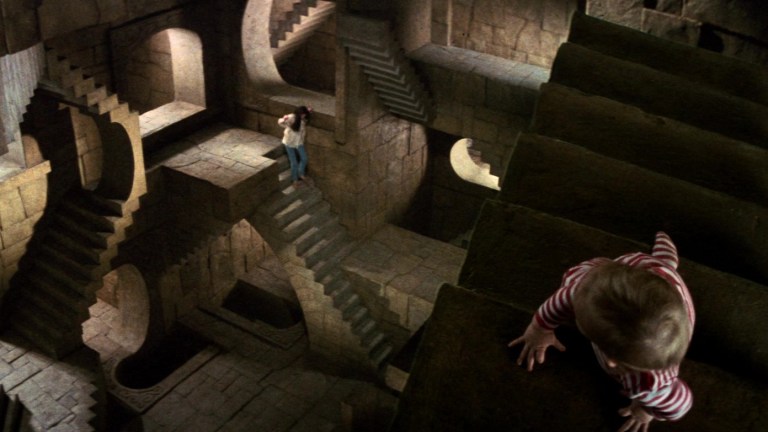
The similarities between Imaginary and Labyrinth mostly come down to a visual allusion towards the end of both films. One of the final scenes in Labyrinth takes place in a surreal space with stairs and walls inspired by the illustration “Relativity” by M.C. Escher. Treading into spoiler territory, Imaginary also includes a location seemingly inspired by “Relativity.” Or is it an allusion to Labyrinth? Either way, it’s the same result. Imaginary and Labyrinth also have a few similar themes, such as a magical being wanting to capture a child, and how the power of will and belief can be used to push away the negative things in your life. Ultimately, these are very different movies, but they’re not necessarily as separate as it might appear on a quick glance.
Five Nights at Freddy’s (2023)
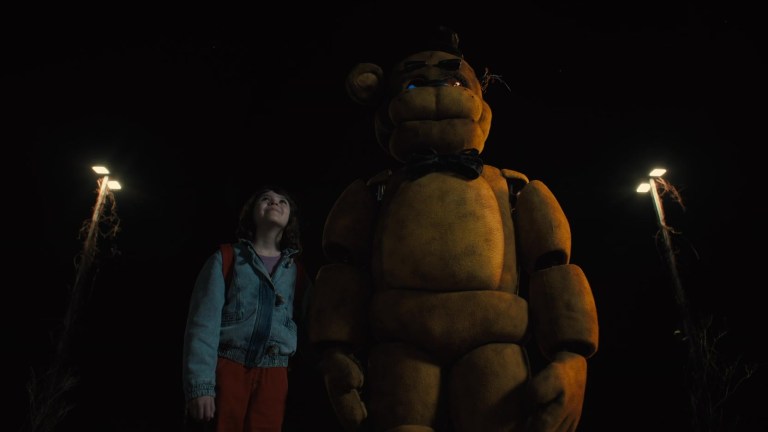
Five Nights at Freddy’s bears mentioning here because of the obvious: a bear that shouldn’t be alive and who has the potential for supernatural danger. In FNaF, Freddy Fazbear and friends aren’t the ultimate danger and are, in fact, misled and misunderstood. Chauncey is absolutely malevolent in Imaginary. So, it’s similar, but different. A less obvious similarity between the two movies is that Imaginary focuses a lot of its time explaining lore and backstory, sometimes at the expense of creating atmosphere and quality character moments. The same argument could be made for Five Nights at Freddy’s, though, to be fair, the lore is an essential part of the FNaF experience, so it’s to be expected there.
Drop Dead Fred (1991)
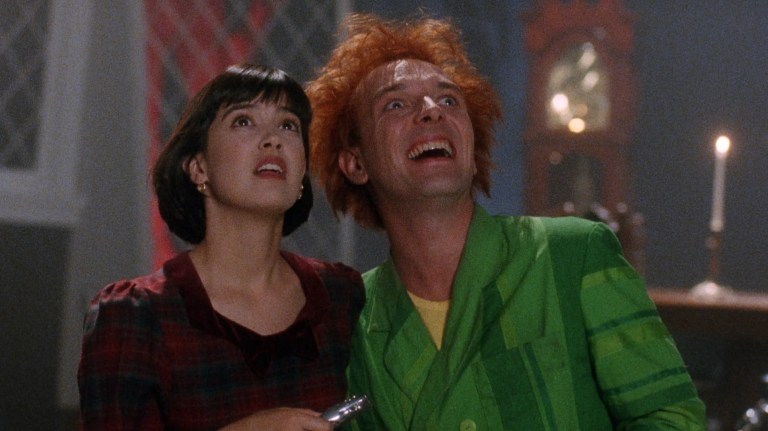
Drop Dead Fred is in this list simply because it’s fantastic and is one of the best movies ever made about an imaginary friend. Though the movie does get dark and emotional when it comes to its themes of psychological abuse from a family member, it certainly is not a horror movie. It is a wonderfully dark comedy starring Phoebe Cates as a woman whose life is in shambles and is forced to move back in with her mother. She discovers her childhood “imaginary” friend, Drop Dead Fred played by the incomparable Rik Mayall, is still there, and havoc ensues. If you enjoy movies about imaginary friends and you’ve never seen Drop Dead Fred, go watch it.
